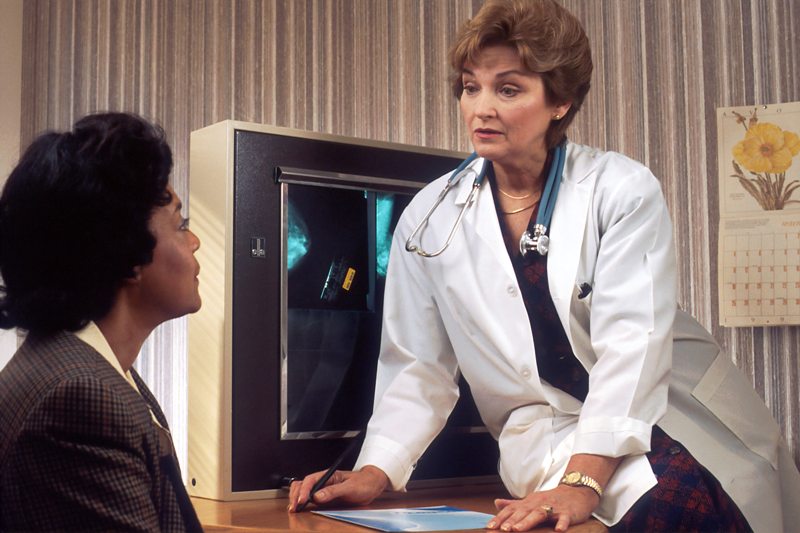Whether you refer to it as hormone therapy, hormone replacement therapy, or ovarian hormone therapy, it all pertains to a treatment involving estrogen and progesterone to supplement declining hormone levels in the female body during menopause.
Modern medical science suggests that the term “hormone replacement therapy” contradicts the true nature of the treatment, as it implies that menopause is a disease caused by hormone deficiency. In reality, menopause is a natural phase in a woman’s reproductive life, similar to puberty. Therefore, the term “hormone therapy” has gained popularity over time.
Who can Benefit from Hormone Therapy?
Although menopause is a natural life phase, its symptoms can prove detrimental to many career-oriented women’s standard and active lifestyles today.
Consequently, most women opt for hormone therapy to alleviate these symptoms, such as hot flashes, moderate to severe vaginal dryness, and related discomforts. Sometimes, even younger women undergo hormone therapy to address conditions where ovaries do not naturally produce sufficient estrogen.
In its advanced stages, hormone therapy is also recommended for reducing the risk of heart disease and the debilitating condition of osteoporosis. To minimize risks, doctors may recommend continued treatment for 10 to 20 years or even throughout one’s lifetime.
Who Should Avoid Hormone Replacement Therapy
Hormone replacement therapy (HRT) is a medical treatment that can relieve specific symptoms and conditions associated with hormonal imbalances, such as menopause. However, not everyone is a suitable candidate for HRT, and there are specific groups of individuals who should exercise caution or avoid hormone replacement altogether. Here are some examples:
History of Certain Cancers
Individuals with a history of hormone-sensitive cancers, such as breast or uterine cancer, may be advised against HRT due to concerns that hormonal therapies could potentially stimulate the growth of these cancers.
History of Blood Clots
People with a history of blood clots or a high risk of clotting disorders may be at an increased risk of developing further clotting issues when using hormone replacement therapy, particularly if estrogen-containing treatments are involved.
Liver Disease
Severe liver disease can impact the body’s ability to metabolize hormones effectively, making HRT less safe for individuals with such conditions. The liver plays a crucial role in hormone processing.
Uncontrolled High Blood Pressure
High blood pressure that is not well-managed may become exacerbated by specific hormonal therapies, potentially increasing the risk of cardiovascular complications.
Smoking
Smoking can increase the risk of cardiovascular disease, and when combined with estrogen-containing HRT, it may further elevate this risk. Therefore, healthcare providers often caution against HRT for smokers.
Undiagnosed Vaginal Bleeding
Women experiencing unexplained vaginal bleeding should not start HRT until the cause of the bleeding is identified. Hormone therapy should only be initiated after a thorough evaluation by a healthcare professional.
Certain Medical Conditions
People with specific medical conditions, such as a history of gallbladder disease or certain autoimmune disorders, may need to avoid or carefully consider HRT due to potential risks or interactions with their conditions.
It’s important to note that the decision regarding hormone replacement therapy should always be made in consultation with a healthcare provider. Healthcare professionals can assess an individual’s medical history, current health status, and specific risk factors to determine whether HRT is appropriate and, if so, which type and duration of therapy are most suitable.
Additionally, regular monitoring and follow-up appointments are essential for individuals receiving HRT to ensure safety and effectiveness while addressing potential side effects or complications.
Types of Hormonal Replacement Treatments
Hormonal replacement treatments (HRT) encompass a range of therapies designed to supplement or replace specific hormones. Here’s an overview of the types of hormonal replacement treatments for estrogen, testosterone, and progesterone:
Here’s an overview of the types of hormonal replacement treatments for estrogen, testosterone, and progesterone:
Estrogen Replacement Therapy (ERT)
Purpose: The purpose of estrogen hormone therapy (EHT) is to supplement or replace declining estrogen levels in the body, particularly in women who are experiencing menopause or have surgically removed the ovaries. EHT aims to alleviate the symptoms and discomfort associated with estrogen deficiency, such as hot flashes, vaginal dryness, mood swings, and sleep disturbances.
Additionally, EHT can help prevent or manage conditions like osteoporosis resulting from decreased estrogen levels. It’s important to note that the specific purpose and goals of EHT may vary depending on an individual’s health and medical history, and the treatment should always be discussed with a healthcare provider.
Administration:
- Oral Pills: Common but may pass through the liver and cause side effects.
- Patches: Applied to the skin, allowing hormones to be absorbed directly into the bloodstream without liver contact.
- Topical Gels: Applied daily to dry skin.
- Vaginal Ring: Used to address vaginal symptoms and absorbed directly into the bloodstream.
Testosterone Hormone Replacement Therapy
Purpose: Testosterone therapy is primarily used in men to address conditions like hypogonadism, where the body doesn’t produce enough testosterone. In some cases, it can be used in women as well.
Administration:
- Injections: Given at intervals.
- Topical Gels or Creams: Applied to the skin daily.
- Patches: Worn on the skin and changed regularly.
Progesterone replacement therapy
Purpose: Progesterone therapy often combines with estrogen in hormone replacement therapy for women with an intact uterus. It helps protect the uterine lining from overstimulation by estrogen.
Administration:
- Oral Pills: Commonly used.
- Injections: Less common.
- Topical Creams: Applied to the skin.
- Vaginal Suppositories or Gels: Sometimes used to target specific symptoms.
It’s important to note that the choice of hormonal replacement treatment, its type, and its administration method can vary depending on individual health conditions, symptoms, and the recommendations of a healthcare provider.
These treatments aim to alleviate hormonal imbalances, relieve symptoms, and enhance overall well-being. However, individuals should use them with careful consideration and under medical supervision.
Exploring Hormone Replacement Therapy: Beyond Menopause
Menopause doesn’t always occur at the typical age, and some women may experience it earlier due to various factors such as surgery, radiation, chemotherapy, or natural causes.
In cases of early menopause, hormone or estrogen therapy becomes crucial to counteract the effects of a premature drop in estrogen levels.
While menopause is a natural phase in a woman’s life, dealing with its symptoms can be challenging. Unsurprisingly, an increasing number of American women are considering hormone therapy as they enter menopause in their 40s and 50s.
However, contemplating and deciding can be quite different, leading to significant dilemmas between thinking about it and taking action.
In Conclusion
Hormone replacement therapy can be a transformative experience for women going through menopause or facing hormonal imbalances. It relieves bothersome symptoms and can significantly enhance one’s quality of life. However, it’s essential to approach hormone replacement therapy with careful consideration and under the guidance of a healthcare professional.
We’d love to hear from you if you’re considering hormone replacement therapy or have had experiences with it.
Please share your thoughts, questions, or personal experiences in the comments below. Your insights can help others on their hormone replacement journeys.
Remember, your well-being is a priority; informed decisions can make all the difference in your hormonal health.
References
- My menopause doctor, “Hormone Replacement Therapy (HRT)”, available at https://www.menopausedoctor.co.uk/menopause/topics/hrt (acceded 01 June 20202)
- HNS “Hormone replacement therapy (HRT)” available at https://www.nhs.uk (acceded 02 June 2020)
- Fondazione Veronesi “Menopausa: perchè le donne non devono temere la terapia ormonale” vailable at https://www.fondazioneveronesi.it/magazine/articoli/ginecologia/perche-le-donne-non-devono-temere-la-terapia-ormonale (acceded 02 June 2020).
- PDF doc. “Guide to Estrogen Replacement” written by Dr Friedman’s, available at http://www.goodhormonehealth.com/estrogen.PDF, (acceded 13 June 20202)
- Stanczyk FZ, Archer DF, Bhavnani BR. Ethinyl estradiol and 17β-estradiol in combined oral contraceptives: pharmacokinetics, pharmacodynamics and risk assessment. Contraception. 2013 Jun;87(6):706-27.
- Sitruk-Ware R. Progestins in hormone replacement therapy and prevention of endometrial disease. In: Sitruk-Ware R., Mishell DR, Jr, Eds. Progestins and antiprogestins in clinical practice. New York, NY: Marcell Dekker, 2000: 269-277
- Photo by National Cancer Institute on https://unsplash.com/
- Photo by Simone van der Koelen on https://unsplash.com/


